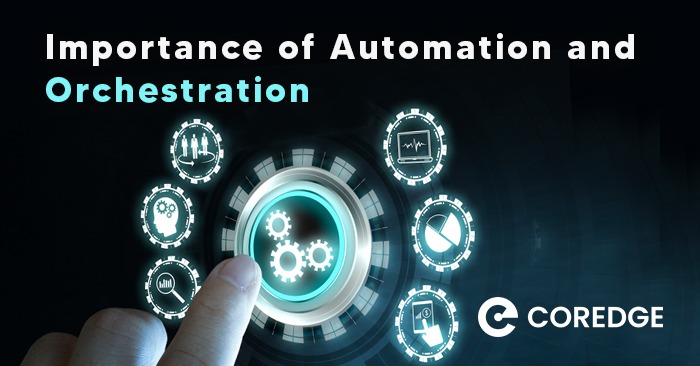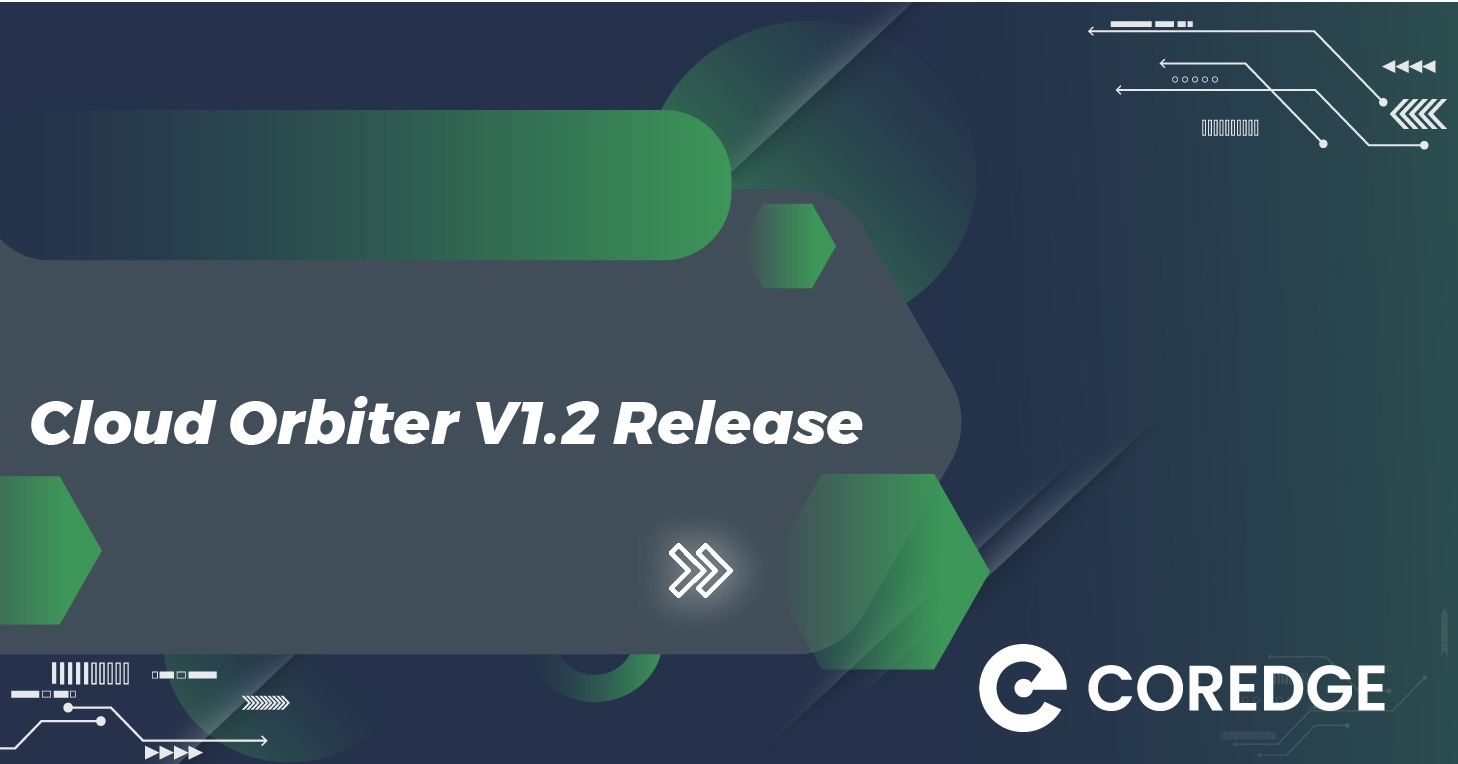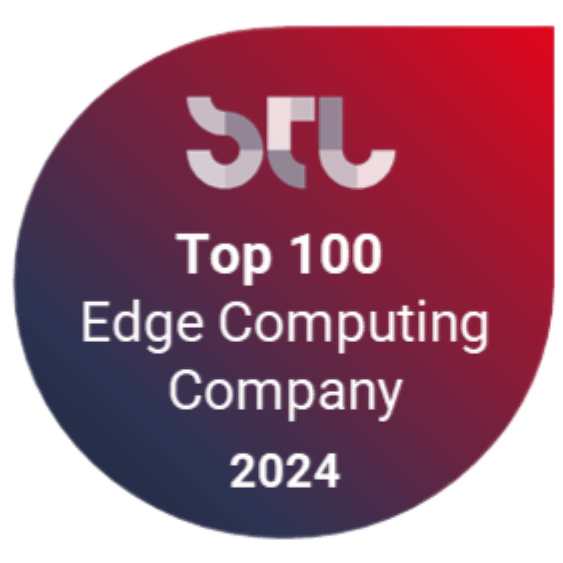Importance of Automation and Orchestration
Coredge Marketing
June 16, 2023

One may lower operational expenses, increase efficiency, and increase team productivity by automating repetitive processes. However, orchestration—a phrase frequently conflated with (or used interchangeably with) automation—is also necessary when bringing automation to a complicated IT environment.
In this blog, we examine the differences between orchestration and automation, two related ideas that can change the way your IT operations are run. We highlight the advantages of using automation in place of repetitive, manual work by defining both approaches, examining how they overlap, and exploring several use cases.
Automation:
Automation is the process of automating a single procedure or a handful of connected processes (such as installing an app). An app’s deployment, network connection, and system integration are examples of many automated operations that can be managed by orchestration to produce a dynamic workflow.
Automation is a straightforward “if this, then that” procedure, whereas orchestration includes numerous moving elements and calls for sophisticated reasoning that can:
• Based on the results of an automated task, make decisions.
• Expand your range of actions and steps.
• Adapt to shifting conditions and circumstances.
• Organize multiple tasks simultaneously.
The distinction between the two ideas can be hazy. For instance, even if a process has 100 stages and you automate every one of them, you will still rely on automation. When you add some coordination and decision-making to the process, you can then begin orchestrating. Technically speaking, automation is a subset of orchestration because manual, non-automated processes cannot be orchestrated.
The goal of automation and orchestration is not to completely replace people. Human engagement decreases in frequency while increasing in value as a corporation becomes more dependent on automated tasks. The IT team can concentrate on creative problem-solving instead of routine, everyday activities.
Orchestration:
The process of orchestrating a group of automated tasks to build a full workflow. A sysadmin configures a system to carry out a number of tasks according to a set of rules and specifications. Configuration, coordination, and management of numerous things are all part of orchestration:
• Computer systems
• Technology
• Application
• Dataset
• Middleware
In orchestration, the end goal is predetermined by the process designer. However, the computer is capable of making choices in response to shifting conditions. Because of this ability, orchestration is much more complicated than task automation. A well-coordinated system can:
• Decide based on a variety of criteria
• Respond to various occurrences
• Keep tabs on multiple IT environments, including databases, apps, and mobile devices.
How Automation and Orchestration are related but different concepts:
Automation and orchestration are two different but related concepts. While orchestration refers to managing many automated tasks to create a dynamic workflow or completely restructure a process, automation refers to automating a particular activity or process.
Use case areas of automation and orchestration:
Automation: There are many different use cases for automation, from IT to HR procedures. Several use cases for automation include;
IT procedures: Many IT processes benefit from automation. Data warehouse management, extract, transform, and load (ETL), hybrid cloud management, etc. are a few areas where automation might be helpful.
HR procedures: Automating routine, manual procedures like payroll and employee onboarding.
Accounting procedures: Automation can assist with the generation of profit and loss statements and billing procedures. It lowers the possibility of errors and raises the standard of reporting.
Orchestration:
Companies can save time and money by orchestrating automated chores, freeing up staff members’ schedules for more difficult jobs. There are several applications for orchestration, including:
DevOps: Silos between teams working on software development and operations can lead to a lack of collaboration. To reduce the likelihood of mistakes and missed deadlines, the teams must effectively coordinate. By automating numerous operations and procedures and bridging the distance between the teams, orchestration offers a solution.
IT teams are assisted in configuring, managing, and coordinating computer systems, applications, and services via IT orchestration. By using orchestration, many DevOps-supporting workflows or processes, including the provisioning of virtual servers and database maintenance, can be automated simultaneously.
Scaling, performance monitoring, and policy checks are just a few of the workflows that are streamlined by cloud orchestration, which combines numerous automated tasks across clouds. Consequently, cloud orchestration is necessary for a healthy business ecosystem.
Conclusion:
The DevOps culture places a strong emphasis on ideas like orchestration and automation. The two techniques help a DevOps engineer achieve the two main objectives of any DevOps team: accelerating and correctly executing activities throughout the CI/CD pipeline.
Connect with us to know more about our products and services and discover how our expertise can help you grow





